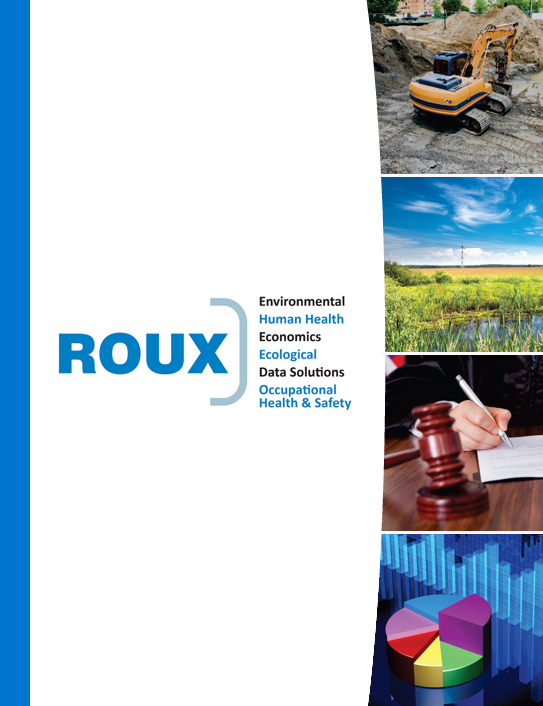New Jersey Environmental Justice Rules – Navigating the New Course of Compliance
As the New Jersey Department of Environmental Protection (NJDEP) Environmental Justice (EJ) Rules became effective on April 17, 2023, it’s important for industrial facility owner/operators and real estate developers to understand whether these rules apply to their facility or project and, if so, how to comply with the new requirements.
EJ Rules apply where three specific criteria are present: (1) the proposed new or existing facility is one of eight specific facility types identified in the rules (i.e., major air sources, solid waste facilities); (2) the applicant seeks an individual permit under applicable Department regulations; and (3) the facility is located or proposed to be located, in whole or in part, in an overburdened community.
If the answer to all three questions above is “yes,” then the EJ Rules apply.
The new rules apply to major sources of air pollution, as well as specific facility types and the various types of permits that these facilities require, when located in overburdened communities. Facilities subject to these regulations will face increased permitting requirements (e.g., health risk screening), and public notice and participation requirements. Failure to plan for and comply with EJ Rules can result in costly delays in project and permit approvals, and denial of permit renewals. Further, there are many unknowns with respect to how the NJDEP will interpret and apply the new requirements.
While to some degree we will all learn about NJDEP implementation of EJ Rules in real time, Roux has worked for years at numerous sites that already address components of the EJ Rules. As such, Roux can offer comprehensive compliance support to help you navigate the new regulations and ensure that your projects meet the required standards.
The first step of the process is to understand whether the new NJDEP EJ Rules apply to your facility. Facilities and projects subject to EJ Rules include:
- A new or expanded facility located within an Overburdened Community, as defined by the new EJ Rules.
- Per NJAC 7:1C-1.5: “Facility” means any:
- major source of air pollution (i.e., Title V facilities);
- resource recovery facility or incinerator;
- sludge processing facility, combustor, or incinerator;
- sewage treatment plant with a “permitted flow,” as defined at N.J.A.C. 7:14A-1.2, of more than 50 million gallons per day;
- transfer station or other solid waste facility, or recycling facility intending to receive at least 100 tons of recyclable material per day;
- scrap metal facility;
- landfill, including, but not limited to, a landfill that accepts ash, construction, or demolition debris, or solid waste; or
- medical waste incinerator, except a medical waste incinerator that accepts regulated medical waste for disposal, including a medical waste incinerator, that is attendant to a hospital or university and intended to process self-generated regulated medical waste, as defined in this chapter.
- Per NJAC 7:1C-1.5: “Facility” means any:
- Facility renewal of an existing major source permit.
- Facility renewal of a Solid Waste Management Plan.
Roux can help you evaluate whether your new project or facility expansion is located proximate to an overburdened community and meets the criteria that will trigger the enhanced EJ review and public participation requirements of the new EJ Rule.
What types of compliance services might be needed where Roux can either lead the effort or team with attorneys and/or public relations firms to meet your objectives?
- Environmental Permit Applications:
- Assistance with the preparation and submission of permit applications, ensuring that all necessary information is included and to determine whether your permit application is subject to the EJ Rules.
- Technical permit support including potential to emit evaluations and risk screening analyses involving air dispersion modeling.
- Environmental Justice Impact Statements (EJIS):
- Conducting EJIS to identify potential risks, stressors, and impacts to nearby communities, and to develop strategies to mitigate those risks.
- Public Participation:
- Facilitating public participation in the permitting process, ensuring that communities are informed and engaged throughout the process.
- Compliance Monitoring:
- Provide ongoing compliance support to ensure that your facility and/or project still is in compliance with the new EJ Rule, specifically by ensuring that mitigation requirements for addressing facility impacts to environmental and public health stressors are properly maintained and optimized.
While this may be new to many, Roux has the experience and expertise to navigate this terrain. Roux’s experience allows us to advise on strategy that best addresses our client’s project needs while simultaneously satisfying potential community concerns.
Interested in hearing more about the NJDEP Environmental Justice Rules from our experts? Please contact us using the form below.

